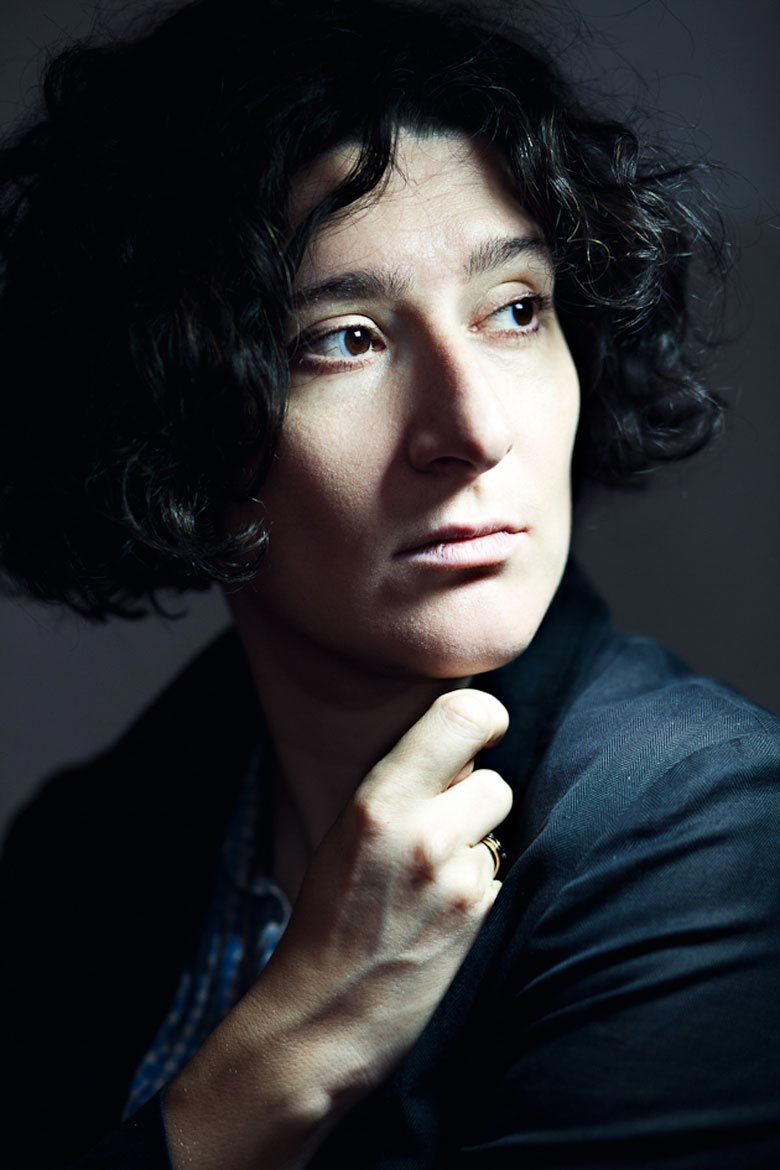
Maria Stepanova (Image credit: Sergey Melikhov)
Maria Stepanova was already an important and innovative poet by the time of Vladimir Putin’s accession, but the times called for a tougher, more public role.
Today, she is one of the most visible figures in post-Soviet culture – not only as a poet, but as a journalist, a publisher, and a powerful voice for press freedom.
Stepanova will be speaking on “Time Backward: Putin’s Russia in Search of Identity” at 7:30 p.m. on Wednesday, April 6, at Levinthal Hall, Stanford Humanities Center. She will also give a reading of her poetry (in Russian) at 6 p.m. on April 7 in Piggott Hall, Room 252. Both events are free and open to the public.
She is the founder of the Colta, the only independent crowd-funded source of information that exists in Russia today, with 900,000 unique visitors per month. The online publication has been called a Russian Huffington Post in format and style – and also compared to the New York Review of Books for the scope and depth of its long essays.
Dystopian future
Stepanova’s April 6 talk will consider Russia’s current obsession with the past, at all levels of society, and its direct effect – what she calls “hybrid archaism as a new model of statehood.”
“Putin’s Russia is never able to sell a compelling version of the future. All it is able to produce, and it’s quite creative in that aspect, is a vision of the past – or a patchwork of different pasts – as a shelter, where one has to hide from the future,” she said.
Russians, she recently wrote in Eurozine, are fearful of a dystopian future, and bound to a “schizoid present.” Hence, a tacit social contract prevails: “We are prepared to consider our imperfect state acceptable as long as things don’t get worse.”
The Muscovite is the author of 10 poetry collections and a recipient of several Russian and international literary awards, including the prestigious Andrey Bely Prize and Joseph Brodsky Fellowship. She was recently a fellow with Vienna’s highly regarded Institut für die Wissenschaften vom Menschen.
As a poet, Stepanova is credited with reviving the ballad form in Russian poetry. She has also rekindled writer Nikolai Gogol’s skaz technique of telling a story through the scrambled speech of an unreliable narrator, using manic wordplay and what one critic called “a carnival of images.”
Stepanova relishes this kind of speech “not just for how it represents a social language but for its sonic texture,” wrote scholar and translator Catherine Ciepiela in an introduction to her poems. “She is a masterful formal poet, who subverts meter and rhyme by working them to absurdity. For her the logic of form trumps all other logics, so much so that she will re-accent or truncate words to fit rigorously observed schemes.”
The results of her verbal pyrotechnics are often hilarious – for example, one poem juxtaposes Renaissance pornography with Stalin’s Five-Year Plans.
‘The inner editor’
Stepanova began the online “Openspace” in 2007.
“I was thinking about a cultural daily, something that would provide the audience with modern, up-to-date, passionate view on what is going on in Russian culture and in the outer world. In a short time, it became obvious that there is no stand-alone, solitary ‘culture’ in current times, that to speak about it means being socially and politically involved,” she said.
Openspace ended in 2012 after private funders withdrew support in a political climate that had grown more hostile to independent journalism.
“If you are owned, you are always manipulated – not necessarily directly by Kremlin, sometimes all it needs is to have a cautious investor, who is interfering with the editorial policy,” Stepanova said. “The inner editor – a term from the Soviet times, meaning an entity in your head who tries to prevent you from saying the direct truth – is very active in the Russian media landscape.”
Colta was born in the ashes of “Openspace.” According to Stepanova, “As the official media, from the TV to state-controlled press, turned into an instrument of propaganda and strongly opposed to anything foreign, Colta became an important place where you still could find unfiltered info on what is going on in the outer world. That’s our mission – and that’s why we still strongly resist the idea of paywall. It could give us money we need, but the price to pay is too high: it means that our younger readers in far parts of the country – the regions most impacted by the financial crisis – would lose their only source of information.”
“So the only choice we had was to make the site 100 percent crowd-funded. That’s how we started it, and that’s how it works for almost four years – the only totally crowd-funded site in Russia.”